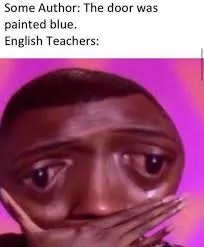VCE is a two-year journey which involves a high degree of academic and personal growth. Young adults experiencing these two years of life will encounter a number of challenges which, albeit rewarding, are nonetheless a cause of much anxiety and pressure. It is important to recognise that the process is, at the end of the day, a team effort – VCE students are as reliant on their teachers for learning material as they are upon their parents for support, just as they rely upon friends to offer an outlet of distraction and ease. As a parent, your fundamental role during your child’s years of VCE is to help him/her manage their time, stress and aspirations to ultimately reach their goals. The purpose of this article is to provide a tangible, how-to guide to fulfil a healthy parent-student relationship during VCE. The below strategies detail the importance of communication, teamwork and compromise as the three cornerstones necessary to achieve conjunctive family and academic success.
Communication
Communication is pivotal during Year 11 and 12. It is important to ensure that all members of your VCE team, whoever this may involve, remain on the same page. Miscommunication is a messy way to disrupt a streamlined VCE journey – continuous and multi-way communication allows you to take positive steps towards your child receiving the most stress-free experience. To adopt this approach within your own family:
Ensure that your child knows that their happiness and education is your first priority.
It is easy to forget the purpose of VCE given the mayhem of it all. It is crucial to reassure your child that you are present as a support network and that you hold a stake in their journey. Rather than present their results as a source of positivity or negativity, create the perception that a healthy and committed approach to VCE is of the highest importance. If your child knows that your role is centred around their happiness and success, they will be more relaxed and willing to share their journey with you.
Frequently reinforce your pride in their achievements.
VCE is a long, tough effort. It is two years of high expectations and insurmountable workload which culminates in the endgame of a four-digit number. For a student undergoing VCE, it is difficult to remove yourself from this mindset. As a parent, remember to appreciate the small successes and the baby steps towards a more recognisable achievement. Even a little acknowledgement, such as praising consistent grades or offering a “Good work!” can remind your child that they are on the right track and that you are aware – and proud – of this.
Take notice of, and respect, the cues that your child presents.
VCE is often described as a rollercoaster. This is a metaphor which accurately summarises the highs and lows that are bound to accompany such an important stage of a young person’s life. It may be tricky to understand why your child may come home one day in seemingly ‘meh’ spirits and so forth. Regardless, these actions (or lack thereof) are designed to subtly inform you of their headspace and mindset at a particular time. If you can form a limited understanding of these cues, they will enable you to provide relevant solutions and/or support. For example, if your child is repeatedly answering to you with curt or brief responses, this may indicate that their mind is elsewhere, and they would appreciate the opportunity to study in quiet for some time. On the other hand, if work progress seems to slow down, a distraction and time-out from study may be necessary. Sometimes, just a brief chat about their day will make a significant difference to motivation levels.
Maintain two-way communication with your child’s teachers.
Communication should flow freely between the classroom and your home. Remaining aware of how your child is progressing at school will give you the best ability to support them in a relevant and sustainable way, while also drawing attention to areas of improvement or growth and enabling you to respond to these developments appropriately. Parent-Teacher Interviews are a great way to keep in touch. Alternatively, a brief email every so often will inform your child’s teacher that you are committed to their progress and want consistent updates.
Teamwork
At the end of the day, VCE is a team effort! Without a doubt, your child’s work and dedication is the driving force, yet the role of parents, teachers, friends and others provides a crucial support network. It is important to maintain this vision and to acknowledge your place within this team. To implement this strategy yourself:
Be prepared to discuss your child’s studies with them.
Basic, genuine attempts to form some understanding of what your child is learning will assure them of your stake within their academic journey. This discussion does not have to be profound – if your child is studying Biology, do not think it is essential for you to gain a strong understanding of the metabolic processes performed by animals, for example. It will never be necessary for you to be an expert at any VCE subject. Rather, simply encouraging your child to share their knowledge with you will contribute to their learning. Carrying on with the example of Biology, you can ask your child to briefly explain the stages of photosynthesis. This technique will result in a number of benefits; your child will be challenged to demonstrate their knowledge and thereby increase their own understanding, and you will find a source of discussion which fosters growth (both academically and emotionally) between yourself and your child.
Express a genuine interest in their work.
It is easy for VCE students to attain a tunnel vision and lean towards route learning during the crunch point of their studies. Articulating your intrigue to learn about their studies will boost student engagement and remind your child that subjects can be extended beyond the classroom. Simply asking natural questions and/or clarifying content will demonstrate your stake in their progress and exemplify the team mindset which promotes cohesive growth. Just discussing your child’s English text with them will position him/her to articulate their ideas and, in turn, contribute to the level of analysis they are able to perform when writing an essay.
Consider investing in tutoring as a way to extend your child’s education beyond the classroom.
A tutor performs the unique role of a mentor, friend and teacher who has the exclusive ability to provide one-on-one support. A tutor can further your child’s skills in a focused and familiar environment, sustaining growth throughout the year and tackling gaps in understanding as soon as these concerns arise. Ultimately, a tutor is an invaluable addition to your child’s VCE team! Lisa's Study Guides provides a one-of-a-kind, specialised tutoring service which offers a wealth of curated resources, 24/7 support and lessons with the state’s most high-performing recent graduates. To find out more about what Lisa's Study Guides can do for you, click here.
Compromise
VCE is a period of significant change and it is important to remain flexible. By acknowledging the importance of focused study time, you can adjust your family’s schedule to meet the requirements of each individual. Encouraging your child to demonstrate two-way communication and positive habits, such as informing you of upcoming commitments, will ensure that compromise can occur in a swift and agreeable fashion. The following advice will contribute to healthy negotiation within your home:
Understand that your child’s priorities have changed.
It is inevitable that Year 11 and 12 are going to require intense focus and a dedication, on your child’s part, to his/her studies. Designating specific study blocks is a good way to ensure that you highlight the importance of routine and consistent study. Despite this fact, it can be difficult to come to terms with the reality of such change. During VCE, it is unlikely that your child will have the ability to sustainably divide their time in a way which is familiar to you. This shift may be significant or subtle depending on the consistency of your child’s study habits, their non-scholarly commitments and a range of other factors. Regardless, it is important to remain adaptable and understand that your child’s response to VCE is a natural reaction to the major change involved.
Be flexible and offer alternatives where necessary.
VCE is often unpredictable and assignments can arise out of the blue. Workloads may be relatively easy-going one moment, before three new assessments come up the next school day and suddenly extra work is required. While it is helpful to theoretically organise family time or outings, it may eventuate that these plans are not always compatible with your child’s schedule. Try postponing events where necessary and approach the situation with a neutral attitude – reassuring your child that Thursday is as good as Tuesday to catch the latest Marvel flick will buoy their spirits and link these events to positive emotions.
Commit to reaching solutions which work for you, your VCE student and the rest of your family.
Settling for an option which disgruntles yourself, your Year 11/12 student or other members of your family is an unsustainable way to manage family expectations during VCE. While it may not be ideal to find a day of the week which is suitable for everyone, or if it looks like cancelling is the easier option, keep in mind the potential repercussions that these decisions may have. Due to its limited nature, time spent as a family is especially precious when a child is undergoing VCE. Reaching mutually agreeable solutions is the best way to meet both family and school needs and will have a significant impact on morale in the long term.
Consider introducing a family timetable developed around your VCE student’s study habits.
It may be useful to organise your family’s priorities and represent these ideals in an accessible timetable. Doing so will ensure that your needs as a family are met without the potential for certain elements to be overlooked and inform family members in advance of upcoming plans. Organise your standard week by priority and create a tangible, week-to-week routine like illustrated:

VCE is an undoubtedly testing stage for a student and their family – yet, it does not have to be overwhelming. Successful navigation through Year 11 and 12 will occur as the result of a cohesive relationship between a student and his/her support network. As a parent, your role is centred around support. Offering your child the confidence of your time, patience and effort will make a world of difference to their morale and, in turn, results. Simple family adjustments, as listed above, will contribute to the sustained growth between yourself and your child. Implementing these strategies and anchoring your focus on the themes of communication, teamwork and compromise will ensure that your family’s VCE experience occurs smoothly.





.webp)





.jpg)